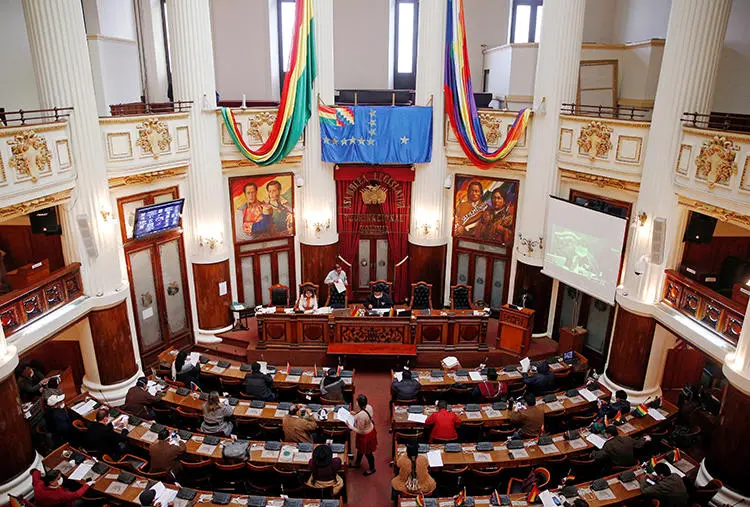Editors’ Note: On May 14, after CPJ published this article, the Bolivian representative to the Organization of American States announced that the government had issued a new decree eliminating the language that CPJ objected to in Decree 4231, and two other passages that had raised freedom of expression concerns, according to news reports and a tweet from Government Minister Arturo Murillo.
Bogotá, Colombia, May 14, 2020 — Bolivian Interim President Jeanine Añez Chávez should revise a recent emergency decree to ensure that it does not restrict press freedom, the Committee to Protect Journalists said today.
On May 7, Añez signed Supreme Decree 4231, which criminalizes the dissemination of “any kind of information, whether written, printed, artistic, or by any other process that puts at risk, affects public health, or generates uncertainty among the population,” and imposes jail terms of one to 10 years for convictions, according to news reports and the text of the decree.
Decree 4231 modifies a March 25 decree, which criminalized defiance of the country’s COVID-19 lockdown or spreading misinformation about the coronavirus, as CPJ documented at the time.
“Instead of responding to concerns about potential press freedom restrictions, the interim Bolivian government has chosen to double down on vague decrees that could criminalize reporters’ work,” said CPJ Central and South America Program Coordinator Natalie Southwick in New York. “Bolivian authorities must find ways to protect public health without endangering the free press.”
Minister of the Presidency Yerko Nuñez said the new measure was aimed at people spreading rumors about the coronavirus, and that journalists should not worry because Bolivia has a special court that handles complaints against the news media, according to reports.
However, Isabel Mercado, editor of the independent daily Página Siete, told CPJ that the decree’s vague language could allow the government to prosecute journalists and editorial cartoonists, and that the new decree also gives judges broad discretion over prison sentences and other sanctions for violators.
Because the decree is vague about what constitutes disinformation, “it could mean just about anything,” Mercado said in a phone interview from La Paz.
Erick Foronda, Añez’s spokesperson, told CPJ via messaging app that the government intends to address criticism of the decree by responding to U.N. High Commissioner for Human Rights Michelle Bachelet, who has also expressed concerns about the decree.
[Editors’ note: The text in the fifth paragraph has been updated to correct Yerko Nuñez’s title.]
